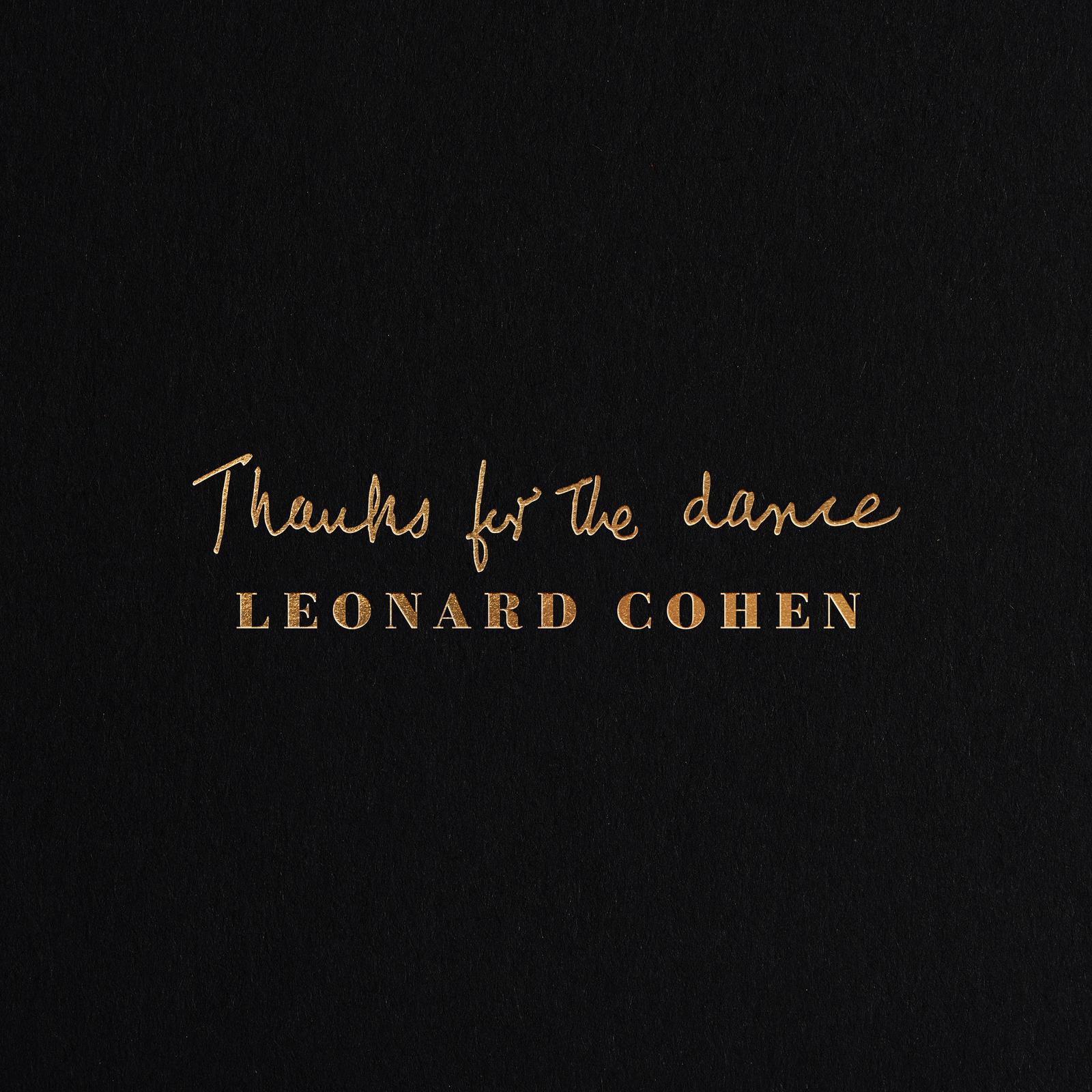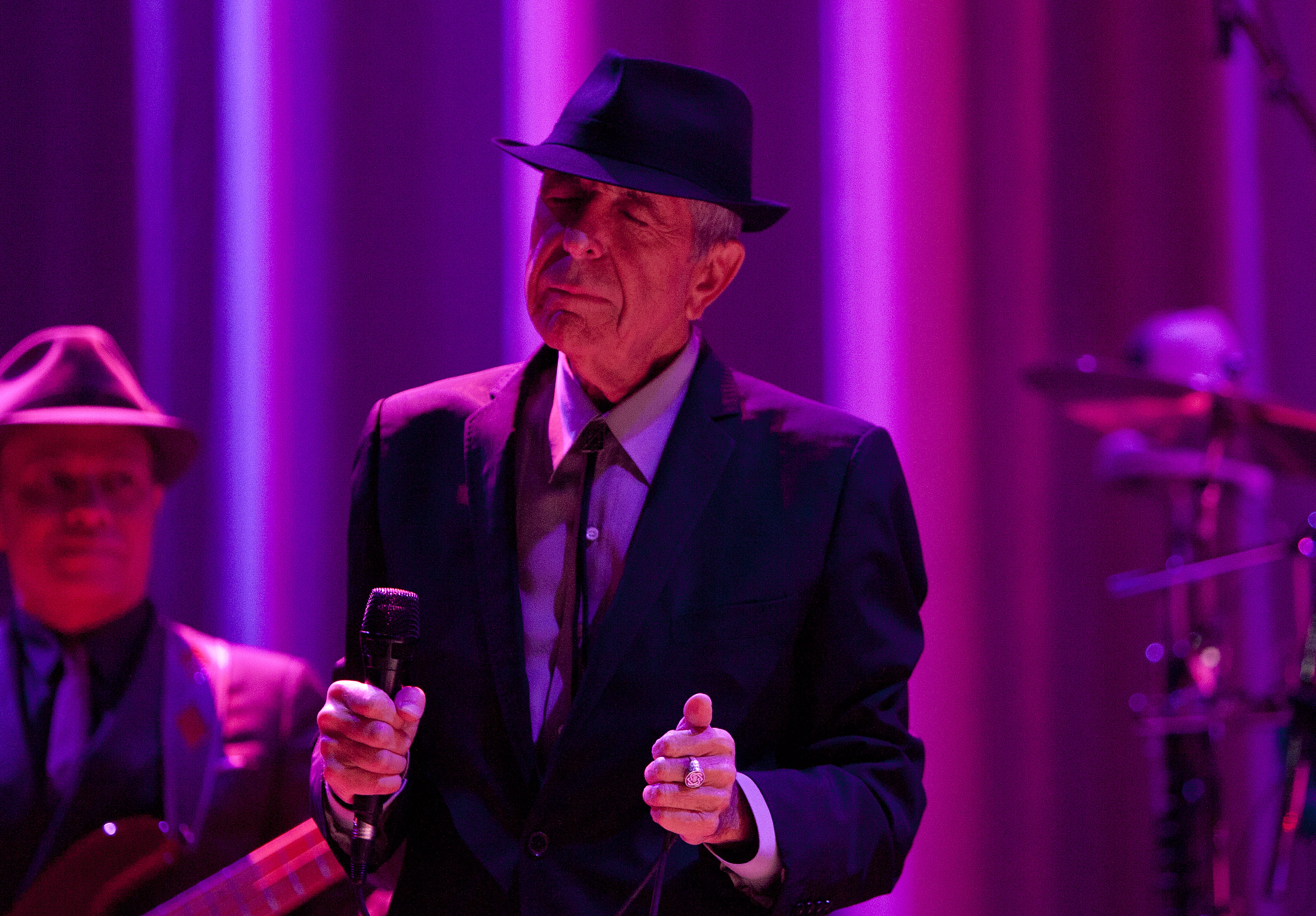You Want It Darker, Leonard Cohen’s final album, released in 2016, was a kind of preemptive memorial service. Like Bowie’s nearly contemporaneous Blackstar, it was an auteur’s final word on the subject of his own life: a last dispatch from the threshold, with all the sadness, humor, and beauty one would expect from a Leonard Cohen album. He died at age 82, 19 days after its release. The lyrics were death-obsessed, but never inert, with momentum that carried forward into the unknown. The accompanying breeze seemed to snuff out all the thin green candles he’d lit along the way.
That gesture is the life force of Thanks for the Dance, Cohen’s first posthumous album, conceived and produced by his son, Adam, who also helped to assemble its predecessor. Gathered from scraps of the You Want It Darker sessions and cobbled together with contributions from Beck, Feist, Bryce Dessner of the National, and more, it’s a worthy postscript to Cohen’s farewell, another clear-eyed look at the inevitability of death.
Though Thanks for the Dance is full of trenchant insights and gorgeous poetry, the tenor isn’t quite so serious this time around. Across nine tracks, the album is decidedly more lighthearted than its predecessor, and, perhaps unsurprisingly, less cohesive. Though the near-mysticism of You Want It Darker persists, Thanks for the Dance is infused with sexuality, politics, and wistful nostalgia.
On “The Goal,” a sparse piano arrangement puts Cohen’s cracked basso at the fore. “I can’t leave my house,” he growls, “Or answer the phone / I’m going down again / But I’m not alone.” The portentous, arrhythmic delivery gives it a spoken-word feel, and the acoustic guitar from longtime Cohen collaborator Javier Mas carries a hint of spookiness. Where much of You Want It Darker dealt in metaphor, “The Goal” revels in the physical and the literal: “I sit in my chair / I look at the street / The neighbor returns my smile of defeat.” He admits existential loss, but draws wry poetry from the simplicity of his situation.
As part of its turn away from the physical, You Want It Darker presented a variation on the sexual themes that had always been so crucial to Cohen’s lyric philosophy, acknowledging and appreciating sexuality’s natural decay. Thanks for the Dance, conversely, revels in sex almost to the point of discomfort. “The Night of Santiago” adapts a translation of Spanish poet Federico García Lorca’s “La Casada Infiel,” “The Faithless Wife,” which tracks a dreamlike riverside tryst. And though the tone is earnest and the language is vivid (“Her nipples rose like bread” was met with audible laughter at an album premiere event in New York), Cohen can’t help but end with an anticipatory wink: “You were born to judge the world / Forgive me but I wasn’t.”
Grappling with the prospect of his own death, Cohen adopted a kind of resigned pragmatism for the You Want It Darker sessions. Though physical limitations prevented him from working out of a studio, he recorded from the privacy of his home in Los Angeles, singing into a microphone on his dining room table. In the forward to Cohen’s posthumous poetry collection The Flame, Adam writes that the work “was what he was staying alive to do.” The mystery of the encroaching void was never as frustrating as the fact of its inconvenience.
Eight of the nine songs on Thanks for the Dance were also harvested from this sealed environment. Only the ninth and final track, titled “Listen to the Hummingbird,” came from outside the house. Lyrics had been bouncing around in Cohen’s head for years; he recited them for David Remnick, during interviews for his 2016 profile in The New Yorker, and again at a press event around the release You Want It Darker. “I don’t think I’ll be able to finish those songs,” he told Remnick, alluding to the countless other half-formed verses he had stored away. “Maybe, who knows? And maybe I’ll get a second wind, I don’t know. But I don’t dare attach myself to a spiritual strategy. I don’t dare do that. I’ve got some work to do. Take care of business. I am ready to die. I hope it’s not too uncomfortable. That’s about it for me.”
Though Cohen never finished “Hummingbird,” engineer Michael Chaves was able to isolate the audio from the press event and repurpose it for the album. With somber, watery piano, and a choir recalling that of 2012’s “Going Home,” it’s a fitting end for the project. “Listen to the hummingbird / Whose wings you cannot see / Listen to the hummingbird / Don’t listen to me,” sings Cohen, yielding completely to oblivion. Cohen was known to ruminate on individual lyrics for decades, and the hummingbird had clearly been with him for some time. It’s there in black on the cover of Recent Songs, and flanked by an unchained heart on the cover of The Future. Cohen had been preparing for this moment his whole life, and when that spirit of transience finally materializes on Thanks for the Dance, it feels uncannily familiar.
On You Want It Darker’s title track, Cohen repurposed the first line of the Kaddish, a Jewish mourner’s prayer, before erasing the religious specificity in service of a grander poetic vision. “Magnified, sanctified / Be thy holy name,” he intoned, “Vilified, crucified / In the human frame.” The line turns on the winced first syllable in “crucified,” Jesus’ suffering a mirror of Cohen’s. Thanks for the Dance contains no such pain, and no such pretensions. In all his sadness—for his physical state (“The Hills,” “The Goal”); for the loss of his muse, Marianne (“Moving On”); and for what more he might’ve learned if he only had time—Cohen is never sentimental.
Rather than languish in memorial, he celebrates the good times and the bad. “Thanks for the dance,” sings Cohen, summing it all up. “It was hell, it was swell / It was fun.”





